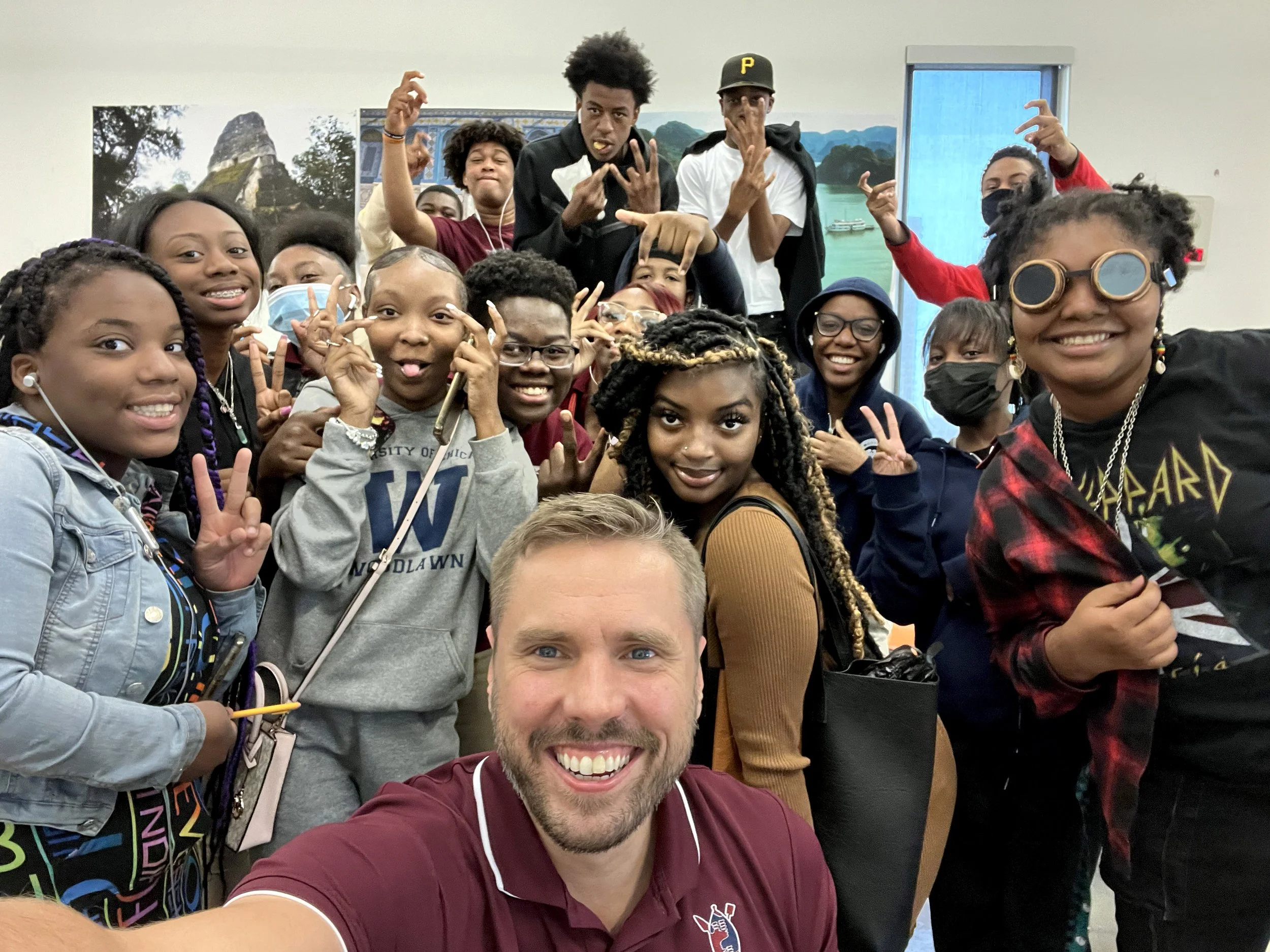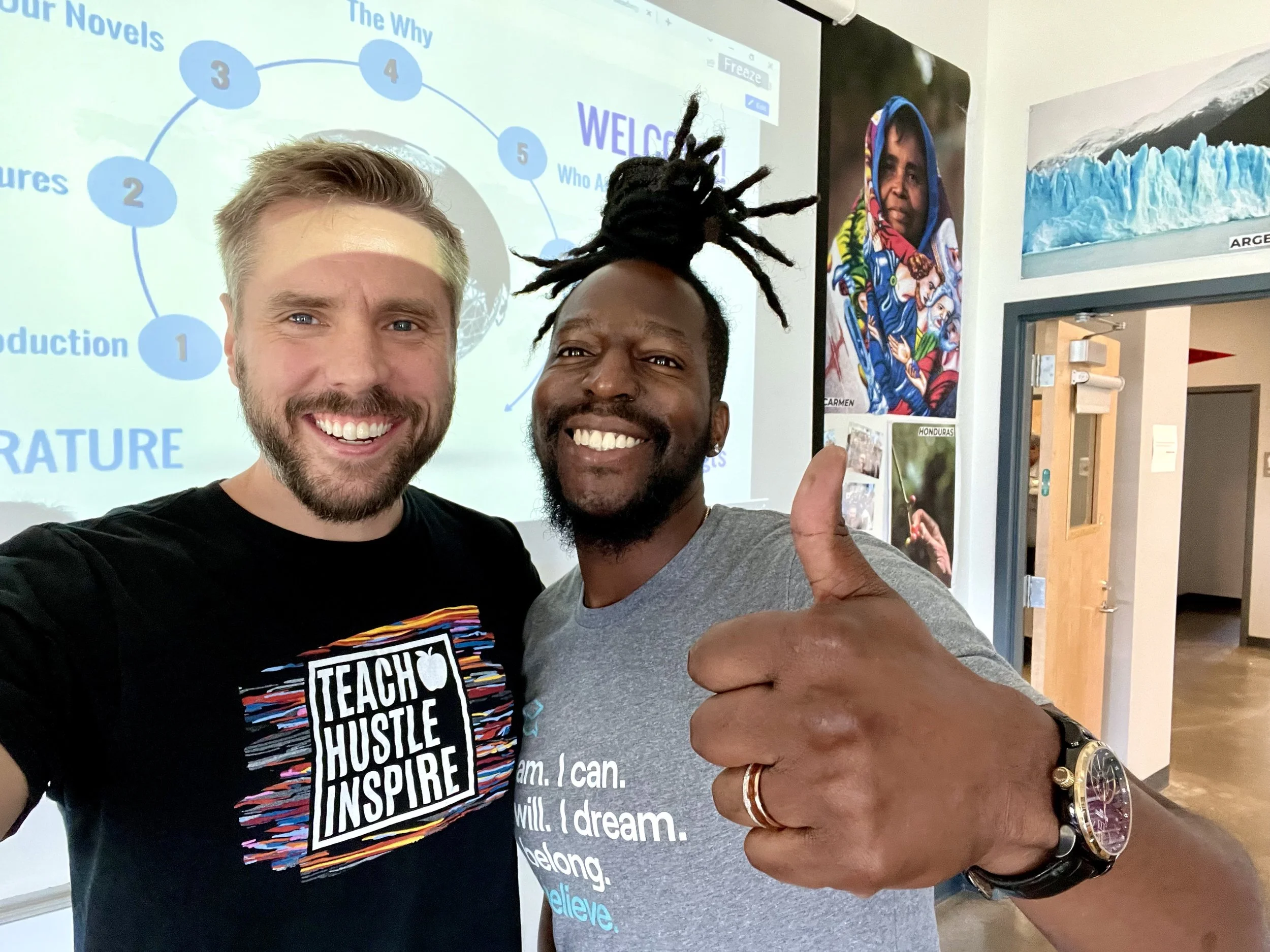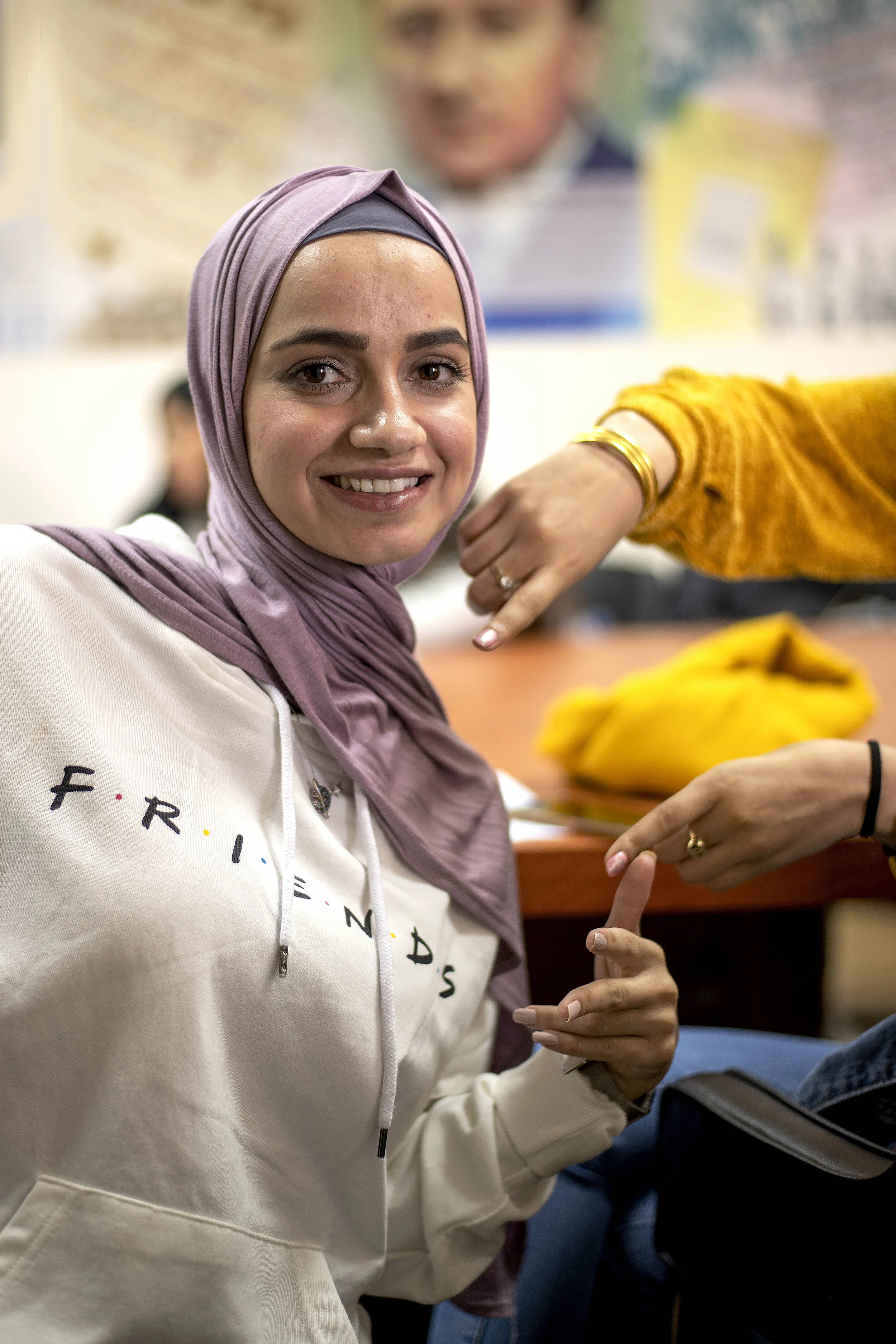Travel lit my own otherwise local imagination, so I fill every class with stories that weave my students into the communicative, ongoing, student-centered, global community we create together.
Examples below highlight my philosophy of connection as Chair of the English Department at the University of Chicago Charter School and English Language Fellow at David Yellin College in Jerusalem, Israel.
Educator
Photo: Shélynn Riel
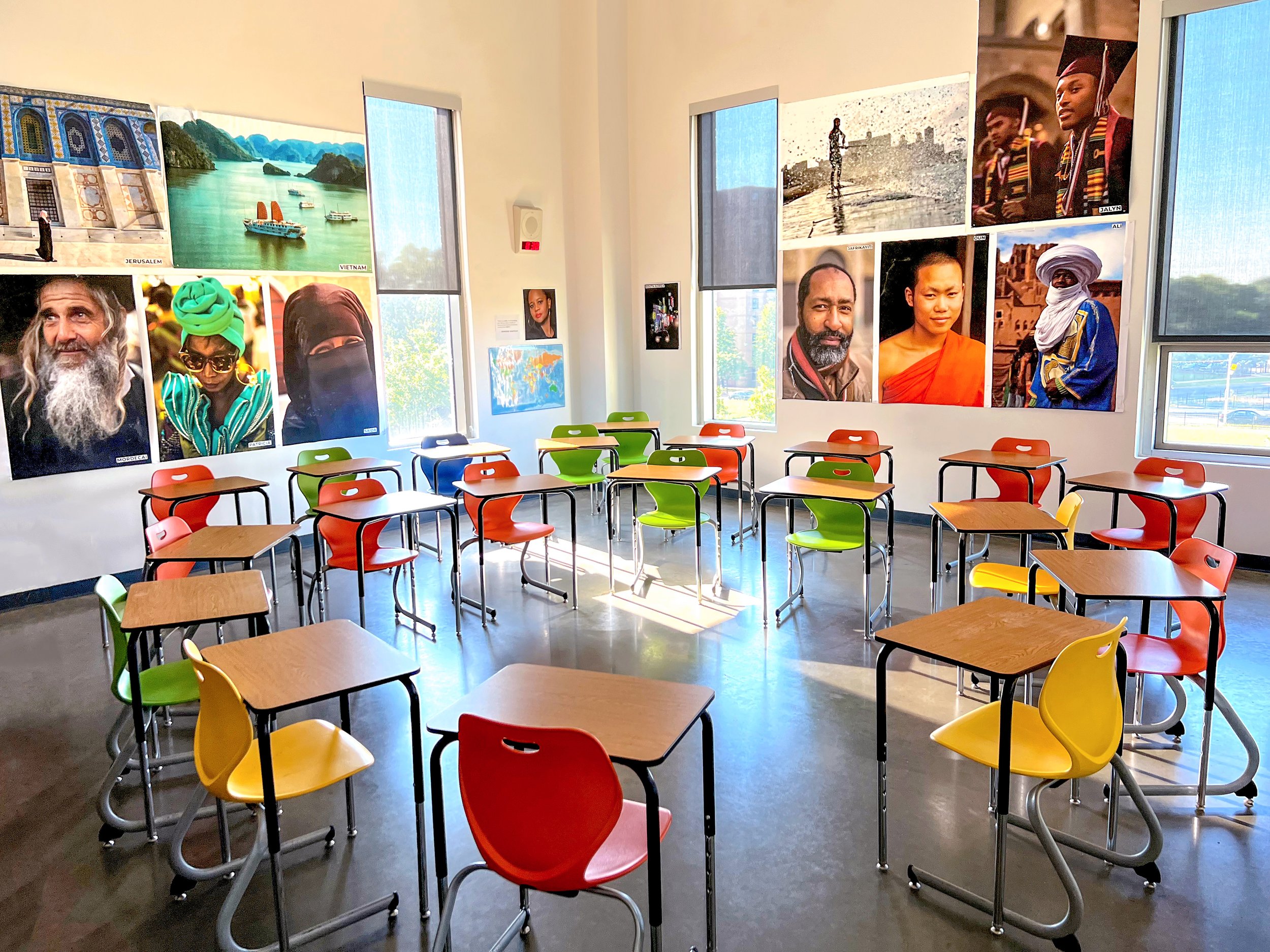
University of Chicago Charter School Woodlawn
Global Podcast Project
From 2020 to 2023, I engineered 10th grade World Literature to bring texts to life. The curriculum balanced “mirrors” and “windows,” juxtaposing recently murdered local rapper King Von’s vivid storytelling with Homer’s, James Baldwin’s reflections on expatriatism with Sor Juana Inés de la Cruz’s searing critique of misogyny in seventeenth century Mexico, and the timeless ambition of Shakespeare’s Sonnet 18 with G Herbo’s paeon to seeking therapy for the PTSD he developed on the South Side of Chicago. Portraits and vistas I photographed overseas covered the walls of the classroom to pull students’ imaginations beyond where we were. And at every chance, I urged my kids go see for themselves firsthand everything they possibly can.
The centerpiece of this effort was the podcast they produced with my former students and contacts in the countries our major texts came from. Jymesha asked Anas via Zoom, “Does the government of Morocco currently subsidize mental heath care for under-resourced families like the protagonist’s?” We were reading Faïza Guène’s Kiffe Kiffe Tomorrow, a coming-of-age story about a Moroccan-French 15-year-old on the outskirts of Paris. I had met Anas while volunteering teaching at the Henna Cafe in Marrakesh and asked him to illuminate the novel’s cultural context. “I don’t actually know,” he chuckled, “but I am going to find out, thanks to your question.”
When they studied Mahmoud Darwish’s protest poetry, they interviewed Israeli and Palestinian high school students I worked with during my English Language Fellowship in Jerusalem and drew parallels between the graffiti on the Separation Wall between the West Bank and Israel and Chicago’s decaying infrastructure. Jada reflected afterwards, “They empathized with me so much more than I expected. It makes me want to understand them better. They were so curious about my experience. They knew all about Black Lives Matter, but before this, I knew nothing about them.”
For Dante’s Divine Comedy, Giovanni from Rondine School of Peace in Tuscany assured them Italians really do still memorize terza rima. Jafrikayiti with the salt-and-pepper beard pictured on the right side of the classroom above, a Haitian broadcast journalist I met abroad who is friends with the author Edwidge Danticat whose short stories about immigrants in America we read, explained the origin of his name, which he chose to replace the slave owner’s name, Jean, that he inherited. Trinity said, “Wow, I’d love to choose my own name.”
As a culmination, I arranged for them to meet the author of The Girl Who Smiled Beads, Joyful Clemantine, who left Rwanda during the genocide and grew up in Chicago.
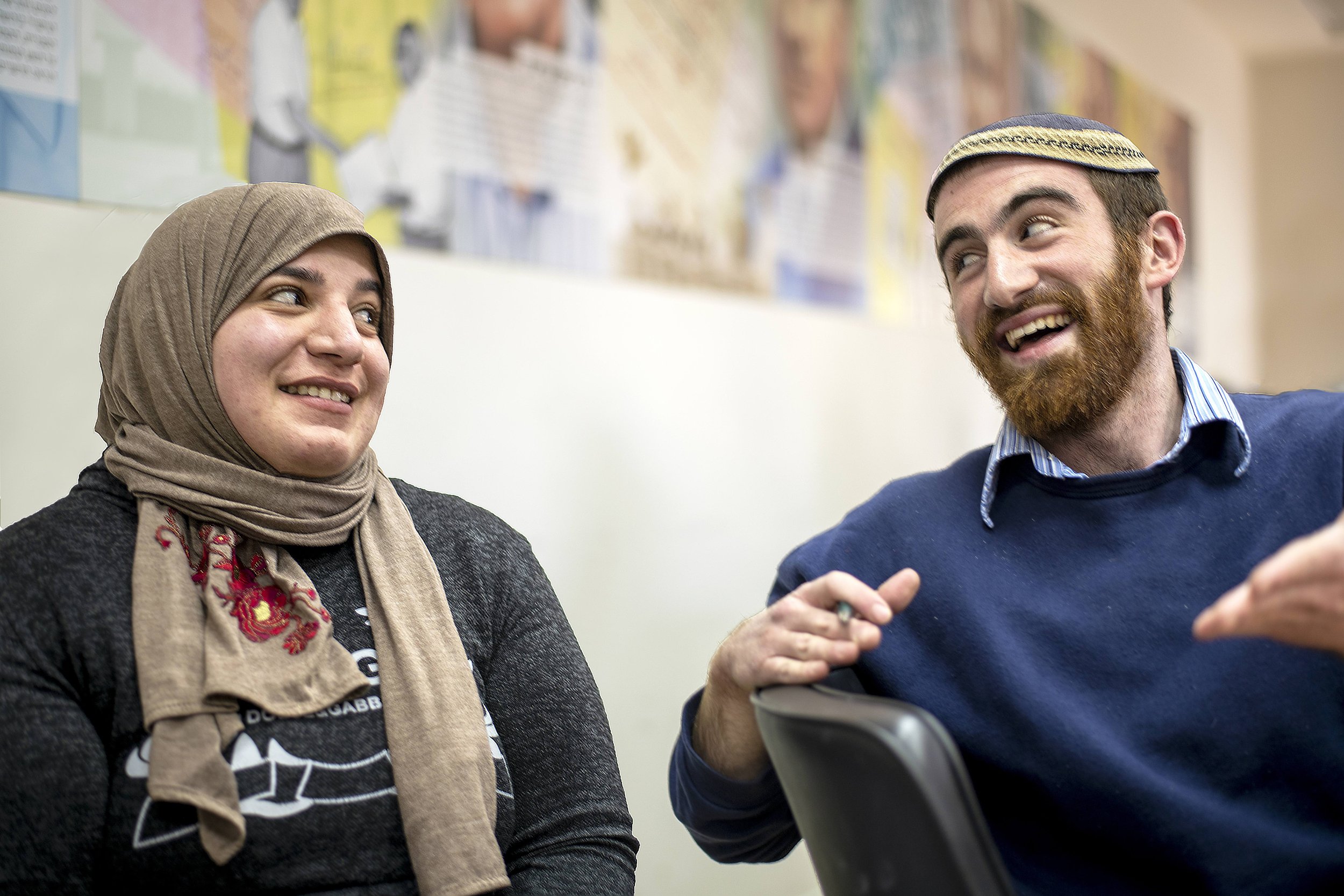
U.S. Department of State English Language Fellowship in Jerusalem, Israel
“Humanizing the Other” Workshop
A group of students from Nazareth joined their peers among my students at David Yellin College in Jerusalem to use storytelling to “humanize the Other” at an annual workshop addressing the tensions in Israel’s demography. These aspiring teachers discussed the origins and meanings of their names, as well as a short story about racism in the U.S.—Shirley Jackson’s “After You, My Dear Alphonse”—under the guidance of instructors Aliza Yahav and Manal Yazbak Abu Ahmad. They then wrote and presented their own stories in spirited groups like Ibtisam and Uri’s. As an English Language Fellow, I shared about interviewing strangers around the world for my podcast of travel stories—The Observer Effect—and how listening cultivates empathy. The students later met again at Nazareth’s Sakhnin College for Teacher Education as the two colleges continue collaborating together to promote mutual understanding.
To be a part of a meeting like this between Jewish and Muslim students is exactly why I leapt at the chance to accept this project match. David Yellin College is unique in the extent to which they strive to integrate the many people groups living here including Palestinians from East Jerusalem and then cultivate future teachers who will in turn encourage their students to empathize across the divisions in Israeli society. One student, Muna, epitomized the spirit of the day when she was thrilled to show off her “Friends” shirt. I was thrilled to capture Ibtisam and Uri laughing together as they composed, pictured above. I learned so much from listening to students like Jihad, who later gave me a tour of Nazareth and hope they were inspired to go out and listen to others too.

